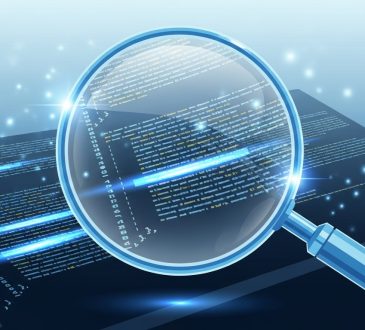AI Agents: From Assistants for Efficiency to Leaders of Tomorrow?

In just a few short years, artificial intelligence (AI) has gone from a promising idea to one of the most transformative forces shaping our world. What once handled simple, routine tasks now powers decision-making systems, predictive analytics, and even creative work. But as AI becomes more capable and independent, a big question arises — could AI agents evolve from being digital assistants that help humans to digital leaders that guide teams, make strategic decisions, and shape the future?
This isn’t a distant idea — it’s already unfolding across industries like finance, healthcare, logistics, education, and even government. The rise of AI agents signals a major shift, not just in what technology can do, but in how it fits into human institutions and leadership itself.
The Evolution of AI Agents
AI agents aren’t entirely new. Early assistants like Siri, Alexa, and Google Assistant marked the first phase — simple, voice-based tools that performed tasks, answered questions, and made daily life more convenient. But they were reactive by design — they only did what they were told.
Then came large language models (LLMs) such as GPT-4 and GPT-5, and everything changed. These systems don’t just process data — they reason, plan, and interact more like humans. They can analyze vast amounts of information, draw insights, and even anticipate what’s needed before being asked.
This evolution gave rise to autonomous AI agents — intelligent systems capable of acting independently within defined goals. For instance, an AI-powered sales agent can identify potential clients, craft outreach messages, and optimize campaigns with minimal human input. In software development, AI agents can write, test, and deploy code; in customer service, they can manage entire support workflows seamlessly.
What once required human intelligence — adaptability, contextual understanding, and strategic thinking — is now being mirrored by machines.
From Efficiency Tools to Strategic Collaborators
Today’s AI agents are not just tools — they’re teammates. They don’t replace human intelligence; they enhance it. Acting as digital collaborators, they handle the heavy lifting of analytics, data processing, and real-time optimization.
In healthcare, AI agents help doctors analyze medical data, identify potential diagnoses, and suggest treatments — all while keeping up with the latest research. In finance, they monitor global markets and execute trades faster than any human could. In manufacturing, they manage supply chains, anticipate disruptions, and keep production running smoothly.
These systems don’t just improve efficiency — they’re influencing strategic decisions. Many leaders now rely on AI insights to shape market strategies, pricing, and resource planning.
The shift is clear: AI agents have moved from following orders to shaping decisions.
The Next Leap: AI as Leaders
As AI agents grow more autonomous and capable of managing complex systems, it’s natural to ask: could they one day lead? Could an AI act as a “Chief Decision Officer,” managing teams, optimizing company strategies, or even leading innovation projects?
It may sound futuristic, but early versions already exist. Some organizations are experimenting with AI-driven management systems that allocate resources, assign projects, and evaluate performance. Others use AI to oversee logistics, energy grids, and global operations — often with little human intervention.
Imagine a corporate AI constantly scanning global trends, assessing risks, and recommending strategic pivots. Or a government AI that simulates long-term policies balancing economy, environment, and social welfare.
These “digital leaders” wouldn’t replace humans but could serve as co-leaders — offering data-driven clarity to complement human empathy and intuition.
The Benefits of AI Leadership
If developed responsibly, AI-led or AI-supported leadership offers several clear benefits:
- Objectivity and Rationality – AI isn’t driven by ego, fatigue, or bias. It can make consistent, data-based decisions in areas like hiring, budgeting, or policy-making.
- Scalable Decision-Making – AI can analyze millions of variables at once, helping organizations make faster, smarter decisions on a global scale.
- Continuous Learning – Unlike humans, AI agents constantly learn from every outcome, refining their strategies and improving over time.
- Efficiency and Transparency – Automated systems reduce bureaucracy, document every decision, and create transparency that builds trust.
The Ethical and Practical Challenges
Of course, AI leadership also comes with major challenges:
- Accountability – Who’s responsible when an AI makes a bad call? The question of legal and moral responsibility remains unsolved.
- Bias and Fairness – AI systems can unintentionally carry forward human biases hidden in their training data.
- Human Displacement – As AI takes over analytical and strategic roles, humans must find ways to keep creativity and emotional intelligence central to work.
- The Human Element – True leadership involves empathy, inspiration, and moral judgment — qualities no algorithm has mastered yet.
The Path Ahead: Human–AI Co-Leadership
The future of leadership likely lies in collaboration, not competition. Humans and AI will lead together — each playing to their strengths.
In this model, humans set the goals, values, and ethics, while AI provides the data, foresight, and analytical power to achieve them. Think of it like a captain and navigator: the human decides the destination; the AI charts the smartest route.
To get there, we’ll need clear governance rules, strong AI literacy, and transparent systems. Ethical AI design and explainability will be just as important as speed and accuracy.
A New Era of Intelligent Leadership
AI’s journey has always been about evolution — from simple automation to advanced reasoning, from following instructions to making creative decisions. The rise of AI leadership could mark the next major milestone.
If guided responsibly, AI leaders could help solve humanity’s toughest problems — from climate change to healthcare to equitable education. They could make decision-making more transparent, efficient, and fair while freeing humans to focus on creativity and compassion.
The future of leadership isn’t about whether machines replace us — it’s about how we lead alongside them. The transition from assistants to leaders is already underway, and it could redefine what leadership truly means in the era of intelligent machines.




